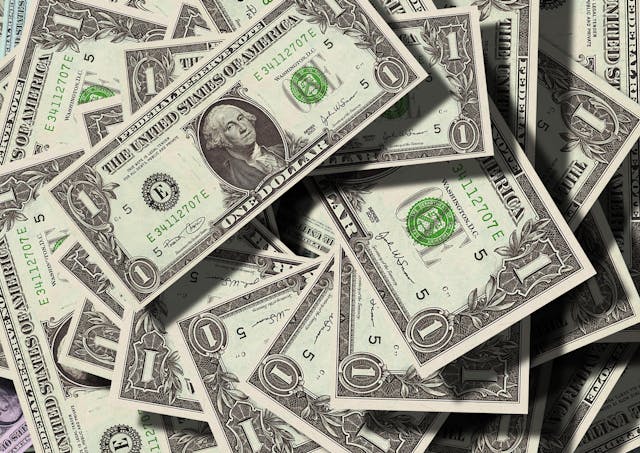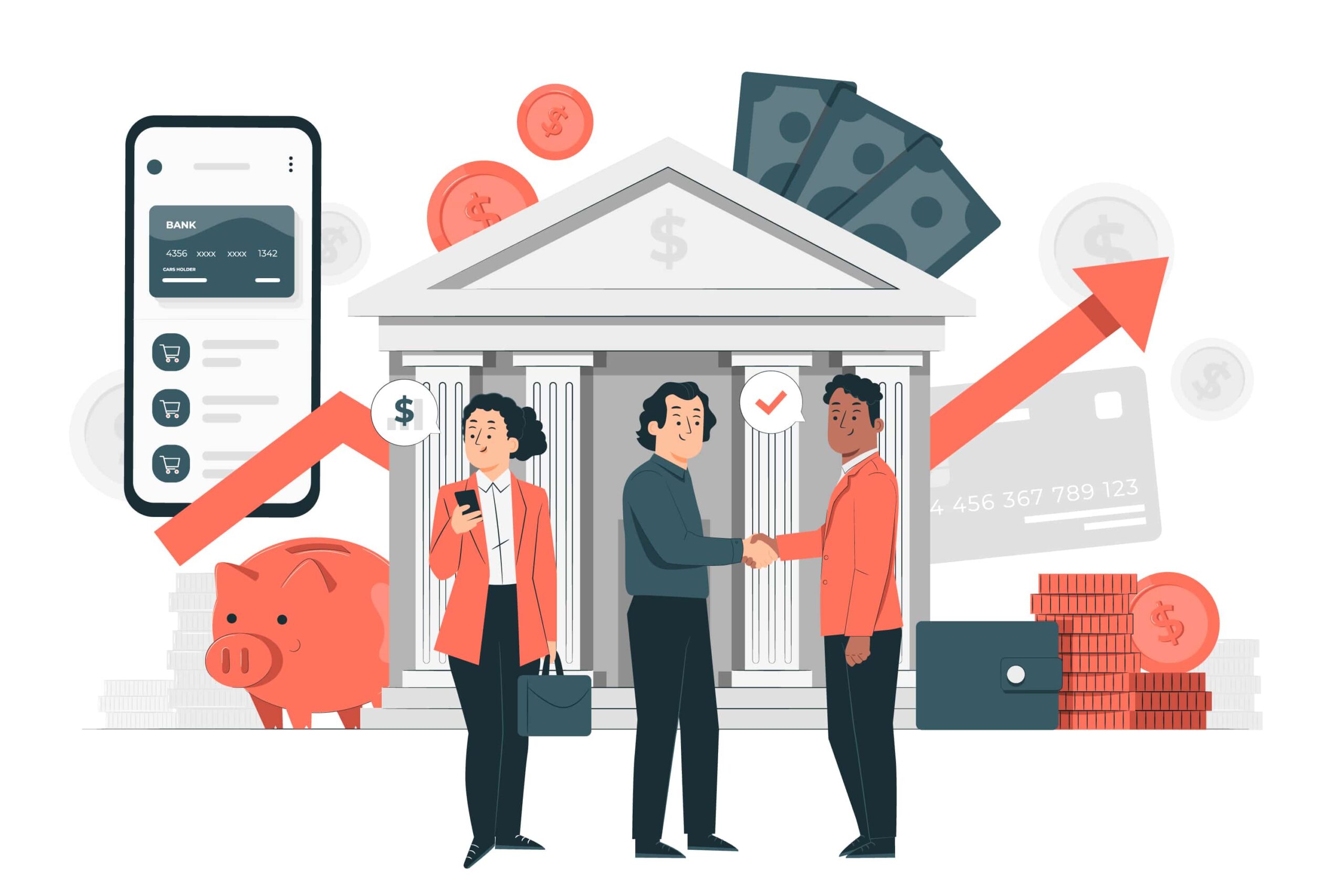Are you looking to optimize your savings? Our comprehensive blog article will help you choose which savings account will earn you the least money. Investigate the elements that influence your wages and make educated choices about your financial future.
Introduction
When it comes to finding a secure place of safety for our hard-earned money, savings accounts are frequently the first choice. But hold your horses! Not all savings accounts are the same, and some may simply be a gradual drain on your cash rather than a growth engine. So, buckle up as we delve into the specifics of which savings account will earn you the least money?, asking where the interest is.
In this article, we’ll discover which savings account will earn you the least money and how different variables affect their profitability. Understanding these factors allows you to make educated choices, ensuring that your hard-earned money works as efficiently as possible for you.
Factors Influencing Savings Account Returns
Interest rates are the most obvious element influencing how much money your savings account accumulates over time. A higher rate increases profits, but it is not the only factor to consider. Account expenses, particularly monthly maintenance fees, may rapidly eat away at interest returns. Similarly, minimum balance limitations may limit your capacity to earn interest until a particular amount is maintained, and the frequency with which compound interest is computed and applied to your balance may have a substantial influence on your overall profits.
Let’s take a closer look at these elements and how they affect the total profits on your savings account.

Types of Savings Accounts
Savings accounts are available in a variety of formats, each with its own set of advantages and disadvantages. Understanding these distinctions is critical for selecting an account that matches your financial objectives and circumstances.
1. Traditional Savings Accounts
Traditional savings accounts are the most prevalent, and they are available at most brick-and-mortar institutions. They provide a safe location to deposit your money, but frequently at a lesser interest rate than other options. Their key benefits are the convenience of physical branches and well-established customer support networks, although they frequently come at a reduced yield potential.
2. High-Yield Savings Accounts
As the name implies, high-yield savings accounts provide much greater interest rates than ordinary accounts. These accounts are often available at online banks, which reduce administrative expenses and pass those savings on to clients in the form of lower interest rates. However, the absence of physical branches may put off some customers who prefer in-person banking services.
3. Online Savings Accounts
Online savings accounts are comparable to high-yield accounts, but only online banks provide them. They frequently have attractive interest rates, low fees, and no minimum balance restrictions. The trade-off is wholly virtual customer care and account administration, which may not be to everyone’s liking.
4. Money Market Accounts
Money market accounts (MMAs) combine savings and checking accounts.. They often provide greater interest rates than regular savings accounts and allow you to write checks and use debit cards. However, MMAs frequently have higher minimum balance requirements, making them less accessible to certain individuals.
Factors Influencing Savings Account Returns
1. Interest Rates
Interest rates are the driving force behind savings account returns, determining how much your money increases over time. Consider interest rates to be the compensation you receive for allowing the bank to keep your money; the higher the rate, the greater your benefit. When interest rates are high, your savings account balance grows faster, providing a greater return on your investment. When rates are low, your savings increase more slowly than a stream, making it more difficult to build considerable earnings. In essence, the interest rate is the deciding element in whether your savings account is a fruitful field for growth or simply a location to put your money with low returns.
2. Account Fees
Account fees have a major impact on savings account returns. When you’re saving for the future, those bothersome fees can eat away at your profits like a greedy squirrel eating nuts. Whether it’s a monthly maintenance fee or a charge for falling below a certain amount, these fees can sneak up on you, depleting your hard-earned money. It’s like attempting to fill a leaky bucket with water: no matter how much you pour in, you’ll lose some along the way. Keeping an eye on such fees and choosing accounts with reduced or no fees can help you maximize your returns and keep more of your money secure over time.
3. Minimum Balance Requirements
The minimum balance restriction has a significant impact on savings account returns. When a bank requires customers to maintain a minimum amount, those who fall below this barrier may suffer fines or receive lower interest rates on their deposits. This requirement might reduce interest profits or eat into potential earnings through fees. As a result, consumers may need to carefully analyze their account activity and balance to maximize their savings returns and prevent excessive fees.
4. Access and Liquidity
Access and liquidity are critical factors in influencing the profits on savings accounts. Banks frequently offer lower interest rates when customers have convenient access to their cash and can withdraw money without fuss. This is because the bank must retain enough cash on hand to meet withdrawal requests, limiting its capacity to invest in higher-yielding assets. On the other hand, if access is limited or funds are locked up for an extended length of time, banks may provide higher interest rates to encourage clients to deposit their money. So, the easier it is to obtain your cash, the lower the returns, and if your money is more tied up, you may experience higher returns.

Which Savings Account Will Earn You the Least Money?
1. Traditional Savings Accounts: A Closer Look
Traditional savings accounts often provide lower returns than other investing options. This is because they typically have cheaper interest rates. With traditional savings accounts, your money sits in the bank, doing nothing but slowly earning interest. The bank does not need to give large profits to attract deposits because the risk is negligible. So, if you want to see your money increase significantly over time, a standard savings account may not be the best option.
2. The Impact of Low Interest Rates on Savings
Low interest rates can significantly affect the amount of money you earn from your savings. When interest rates are low, banks usually offer reduced rates of return on savings accounts. This means that the interest you earn on your investments will be small, resulting in slower long-term growth. Furthermore, low interest rates may not keep up with inflation, reducing the purchasing power of your investments over time. Overall, the combination of low yields and probable inflation erosion can result in your investments earning the least amount of money when compared to periods with higher interest rates.
3. Fees and Their Effects on Your Savings
Fees can significantly reduce your savings, leaving you with less money in the long term. Monthly maintenance costs, ATM fees, and penalties for going below a minimum balance can all add up over time. Assume you have a savings account with a $10 monthly maintenance cost. That’s $120 each year just to keep the account open! Furthermore, if you incur fees for things like using out-of-network ATMs or falling below a particular level, you could lose even more. So, the more fees you spend, the less money you’ll have in your savings account. It’s like trying to fill a leaking bucket: no matter how much you put in, it will keep emptying.
4. The Role of Minimum Balance Requirements
The minimum balance requirements might have a big impact on how much money you earn from your savings account. When banks enforce minimum balance requirements, they frequently provide lower interest rates to customers who do not maintain the required level. This means that if you fail to maintain the requisite minimum amount in your account, you will receive less in interest. Essentially, failing to satisfy the minimum balance requirement can result in earning the lowest amount of money on your savings because the bank considers this as a criterion to calculate the interest rate it offers you. So, if you can’t maintain the minimal balance, you may end up earning less interest over time.

Alternatives to Low-Yielding Savings Accounts
1. Exploring High-Yield Savings Accounts
High-yield savings accounts are an appealing alternative to typical, low-yielding savings accounts. Individuals who use high-yield accounts can earn much higher interest rates on their money than they would with typical bank accounts. These accounts are often provided by online banks or financial institutions with lower administrative expenses, allowing them to pass on more of their profits to customers in the form of higher interest rates. Savers can maximize their returns on idle cash by choosing a high-yield savings account that does not expose them to further danger. It’s like getting more bang for your money, which makes it a popular choice for individuals trying to increase their savings over time.
2. The Benefits of Online Savings Accounts
Online savings accounts provide higher interest rates, reduced costs, and greater convenience than traditional banks. With simple online management and additional security measures, they offer a modern and convenient solution for savers wishing to optimize their earnings.
Case Studies: Savings Accounts with Lower Returns
To understand why certain savings accounts provide lower returns, consider hypothetical case studies based on frequent banking settings.
Case Study 1: The Traditional Bank Account
Consider a typical savings account with a 0.05% annual percentage yield (APY), a $5 monthly maintenance cost, and a minimum balance of $300 to avoid fees. This account’s costs may easily outweigh its interest profits, especially for balances just over the minimal threshold.
Case Study 2: The High Minimum Balance MMA
Consider a money market account that has a 0.50% annual percentage yield but needs a $10,000 minimum balance to collect interest and avoid a $12 monthly charge. Individuals who are unable to achieve this criteria may have their potential returns negated by the fees, making it an unappealing alternative for those with smaller savings accounts.
How to Analyze and Compare Savings Accounts
Choosing the right savings account involves careful comparison and analysis. Here are steps to guide you through this process:
- Evaluate Interest Rates: Look for accounts with the best annual percentage yield. Remember, even little alterations may have a big influence over time.
- Consider Fees: Monthly maintenance, transaction, and penalty fees may rapidly deplete your funds. Look for accounts that have minimal or no fees.
- Understand the Fine Print: Be aware of any limitations, such as minimum balance requirements or withdrawal limits, that may impact your account’s appropriateness for your needs.
- Use Comparison Tools: Many financial websites allow you to compare savings accounts side by side. Use these resources to make educated judgments.
Strategies to Maximize Savings, Regardless of Account Type
Even if you don’t have the best savings account, certain strategies can help you maximize your savings over time.
- Make Regular Deposits: Consistently increasing your savings may compound over time, resulting in considerable gain.
- Avoid Fees: Look for strategies to reduce or prevent costs, such as keeping minimum balances or choosing accounts that have no monthly fees.
- Shop around: The financial environment is continuously shifting. Review your alternatives on a regular basis to verify that your savings account continues to provide competitive terms.
Conclusion
While the search for the ideal savings account may seem difficult, knowing the variables that lead to lower returns may help you make decisions that benefit your financial objectives. By carefully examining account types, fees, and interest rates, as well as adopting savings tactics, you can guarantee that your money works as hard as possible for you.
Remember that the least lucrative savings account for one person may vary from another, based on their financial circumstances and ambitions. Stay informed, be proactive, and don’t be afraid to switch accounts if you discover one that better meets your requirements.
For more detailed blog visit, CNBC
For blogs to make money, visit Lifeconomics











Spot on with this write-up, I actually suppose this website needs much more consideration. I抣l most likely be again to read much more, thanks for that info.
What抯 Happening i’m new to this, I stumbled upon this I have found It absolutely useful and it has helped me out loads. I hope to contribute & aid other users like its helped me. Great job.
When I initially commented I clicked the “Notify me when new comments are added” checkbox and now each time a comment is added I get several e-mails with the same comment. Is there any way you can remove me from that service? Cheers!
excellent points altogether, you just gained a brand new reader. What would you recommend in regards to your post that you made a few days ago? Any positive?
Definitely believe that which you stated. Your favorite justification seemed to be on the internet the simplest thing to be aware of. I say to you, I definitely get irked while people think about worries that they just do not know about. You managed to hit the nail upon the top as well as defined out the whole thing without having side effect , people can take a signal. Will probably be back to get more. Thanks
Thank you for writing this post. I like the subject too.
One thing I’d really like to say is the fact before buying more pc memory, take a look at the machine within which it could well be installed. If the machine is definitely running Windows XP, for instance, the actual memory limit is 3.25GB. Applying greater than this would easily constitute a new waste. Make certain that one’s motherboard can handle this upgrade amount, as well. Good blog post.
Based on my research, after a the foreclosure home is sold at a bidding, it is common for that borrower to still have any remaining balance on the bank loan. There are many lenders who make an effort to have all expenses and liens paid off by the next buyer. Nonetheless, depending on selected programs, restrictions, and state guidelines there may be a number of loans which aren’t easily sorted out through the transfer of financial loans. Therefore, the responsibility still remains on the consumer that has obtained his or her property foreclosed on. Many thanks for sharing your thinking on this web site.
Thank you so much for giving everyone an exceptionally wonderful opportunity to read critical reviews from here. It can be so amazing and also jam-packed with fun for me personally and my office acquaintances to search the blog no less than thrice in 7 days to study the newest guidance you will have. Of course, I am just actually motivated with all the astounding tactics served by you. Some 4 facts in this article are indeed the simplest I’ve had.
Today, I went to the beach front with my kids. I found a sea shell and gave it to my 4 year old daughter and said “You can hear the ocean if you put this to your ear.” She put the shell to her ear and screamed. There was a hermit crab inside and it pinched her ear. She never wants to go back! LoL I know this is entirely off topic but I had to tell someone!
great points altogether, you just received a emblem new reader. What may you suggest about your post that you just made a few days in the past? Any certain?
You could definitely see your enthusiasm within the work you write. The arena hopes for even more passionate writers such as you who are not afraid to mention how they believe. At all times go after your heart.
Really Appreciate this post, can you make it so I receive an alert email when you make a new update?
I used to be very happy to seek out this net-site.I wanted to thanks for your time for this excellent learn!! I undoubtedly having fun with every little bit of it and I have you bookmarked to check out new stuff you blog post.
Pretty portion of content. I just stumbled upon your weblog and in accession capital to claim that I get actually enjoyed account your blog posts. Anyway I抣l be subscribing in your feeds and even I success you get entry to consistently fast.
Very good website you have here but I was wanting to know if you knew of any message boards that cover the same topics discussed here? I’d really love to be a part of community where I can get comments from other experienced individuals that share the same interest. If you have any suggestions, please let me know. Kudos!
So meticulously done!
Hey There. I found your blog using msn. This is a really well written article. I will be sure to bookmark it and return to learn more of your useful information. Thank you for the post. I抣l certainly comeback.